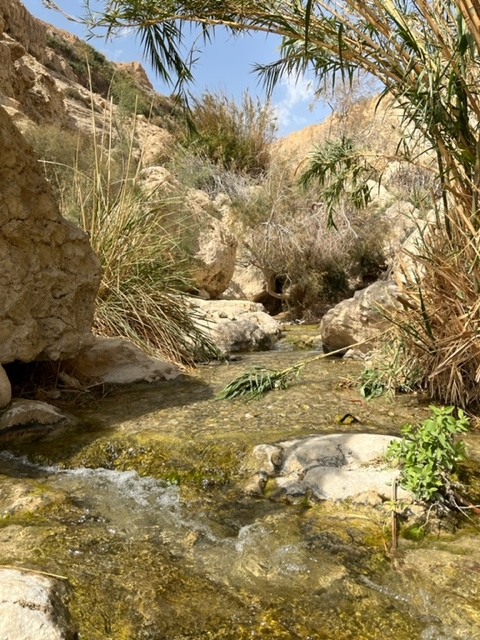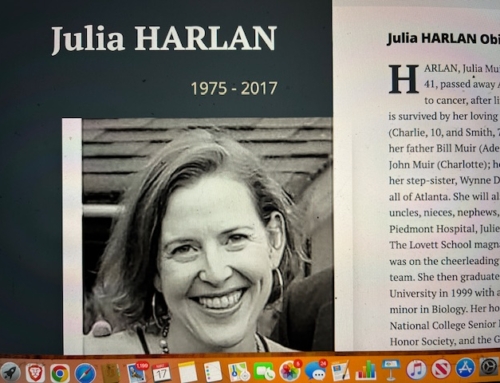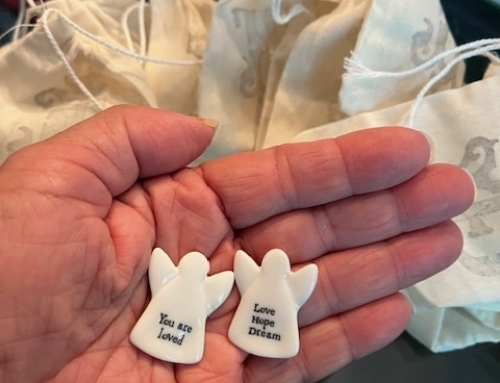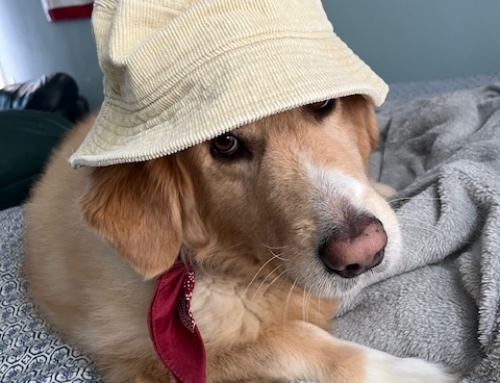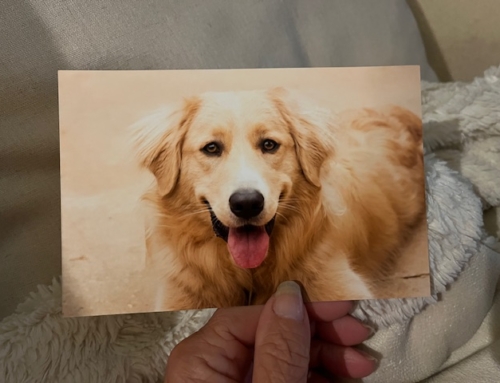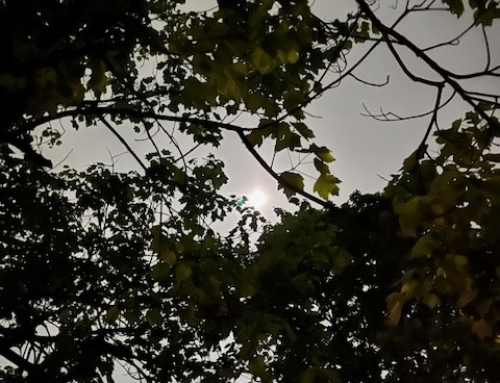
Good morning…
We left the Dead Sea, where the shoreline is shrinking and the water is murky and undrinkable. After a fascinating teaching at the top of Masada, we went to an oasis in the middle of the desert. In contrast to the Dead Sea, we enjoyed living water. From out of the jagged rock faces of the desert, we discovered crystal clear water. We were taught that the water we touched with our very own toes had taken five hundred years to bubble up from below multiple layers of rock. All of the impurities had been filtered out. It made me think of Jesus talking with the thirsty woman at the well in the scorching heat of the noonday. Jesus answered, “You don’t know what God can give you. And you don’t know who I am, the one who asked you for a drink. If you knew, you would have asked me, and I would have given you living water” (John 4:10, ERV).
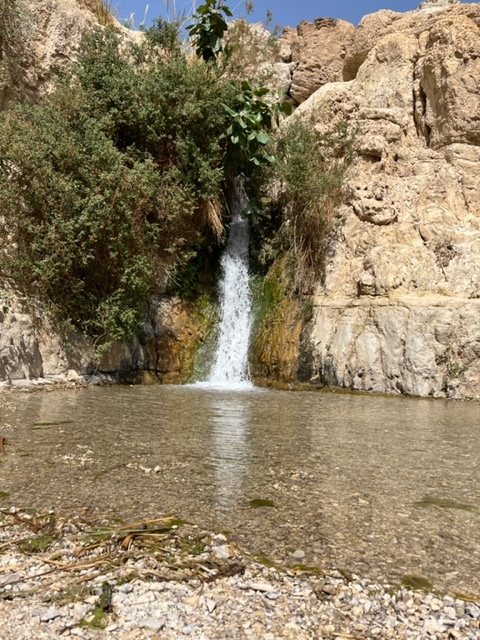
Today we will journey forward filled with our Source of living water.
******
Day 3 – Monday March 7 – Notes from Rev. Steve Allen
Gamla- Golan Heights
Caesarea Philippi -Matthew 16
Tel Dan- 1st Kings 12
Today our word of the day is Shema, which means to hear. “Hear O Israel…” begins the central prayer in the life the Jewish people. Hebrew words like – hear, remember, forget, wait – in English are cerebral words. We think of them as passive words accomplished in the head. But Hebrew thinking transforms these words into action words. You hear by obeying/doing,
How to “Hear O Israel the Lord our God, the Lord is One” is a call to action. And “How shall you hear?” You shall love the Lord your God. And “How shall you love Him?” With all your heart, soul, mind and strength.
Look at all the action verbs in Deuteronomy 6:4-9 (NIV). Hear, O Israel: The Lord our God, the Lord is one. Love the Lord your God with all your heart and with all your soul and with all your strength. These commandments that I give you today are to be on your hearts. Impress them on your children. Talk about them when you sit at home and when you walk along the road, when you lie down and when you get up. Tie them as symbols on your hands and bind them on your foreheads. Write them on the doorframes of your houses and on your gates.
We hear by loving wholeheartedly, but the big question is “How do I show this love?” The Jewish, and even the Christian traditions, all vary in how they demonstrate love for God. Today we will see evidence of Zealots, people who believed that loving meant fighting. Today we will talk about orthodox Jews, people who believed that loving means observing the law literal, literally binding the words and tying the words to their own bodies. Today we will see people who struggled with how to maintain their faithfulness in the face of competing religions, ideologies, and differing ways of loving God.
Jesus grew up in a Jewish family and soon into his ministry he was asked an important question.
“Teacher, which is the greatest commandment in the Law?”
Jesus replied: “‘Love the Lord your God with all your heart and with all your soul and with all your mind.’ This is the first and greatest commandment. And the second is like it: ‘Love your neighbor as yourself.’ All the Law and the Prophets hang on these two commandments” (Matthew 22:36-42, NIV).
Actively living out the love of God is what the life of Jesus was all about.
******
As we consider various ways believers faithfully show love, what might we hear personally from the Lord our God, the Lord God who is One? If we asked God directly and waited for an answer, what response might come to our big question: “What does it mean for me to love You with all my heart, soul, mind and strength today?”
Asking, waiting, what might we hear?
The last day of the festival came. It was the most important day. On that day Jesus stood up and said loudly, “Whoever is thirsty may come to me and drink. If anyone believes in me, rivers of living water will flow out from their heart. That is what the Scriptures say.” Jesus was talking about the Spirit (John 7:37-39a, ERV).
…Sue…
